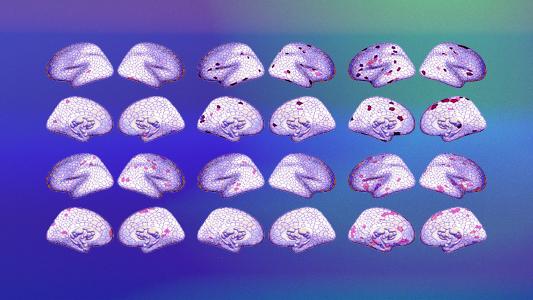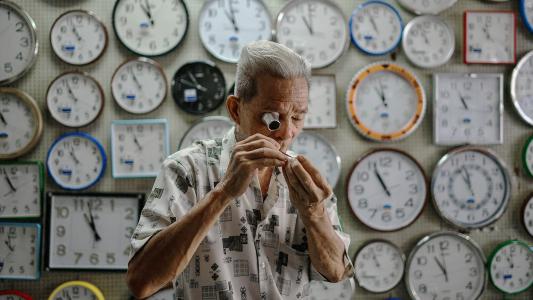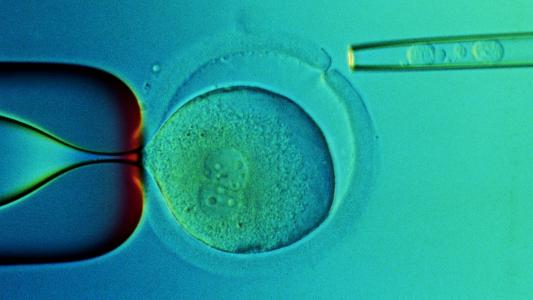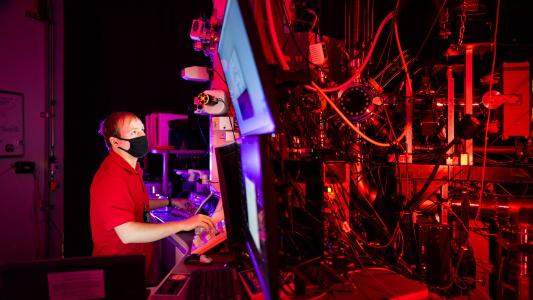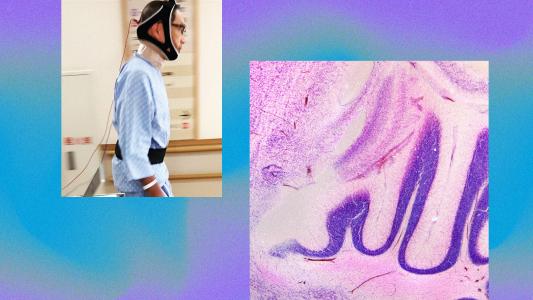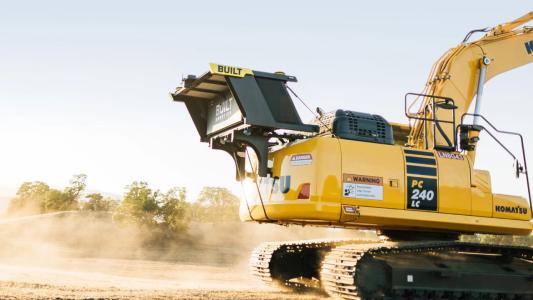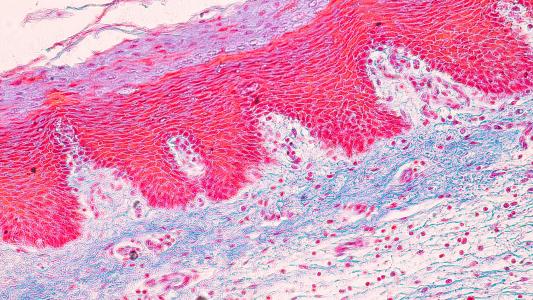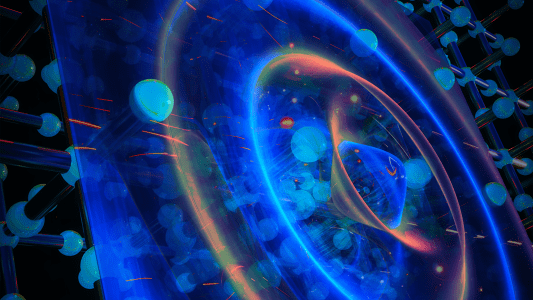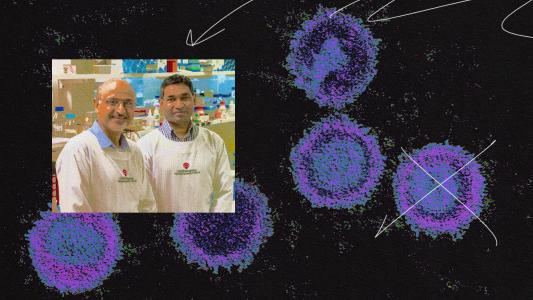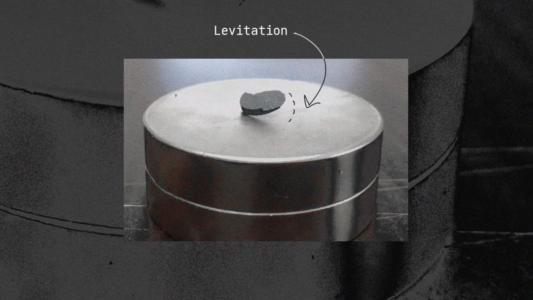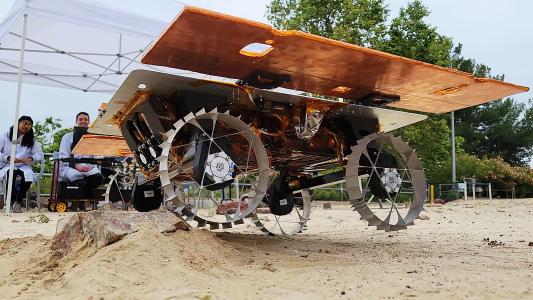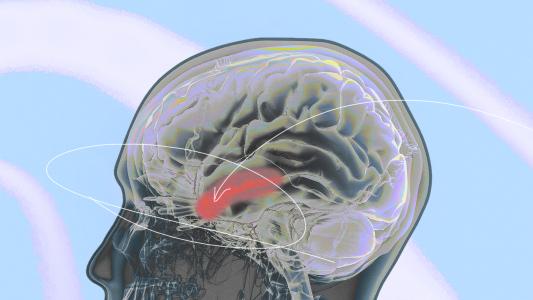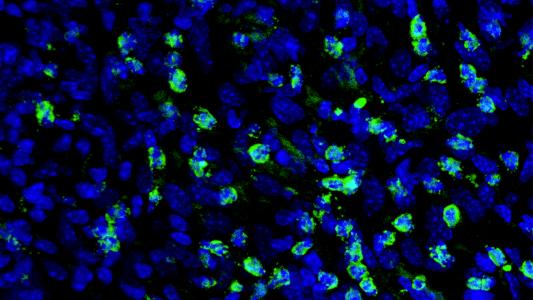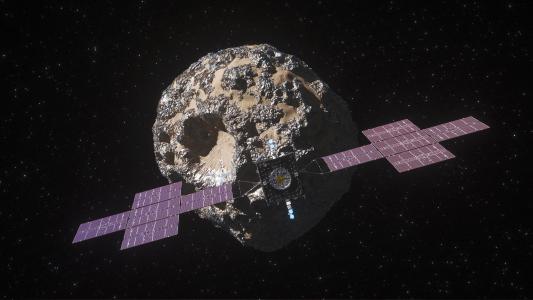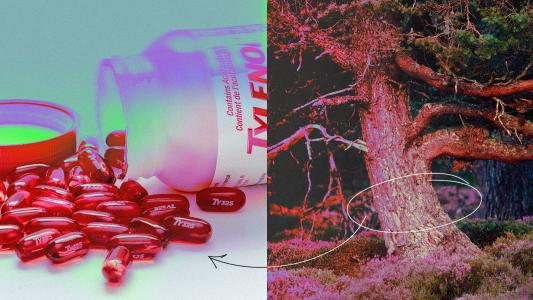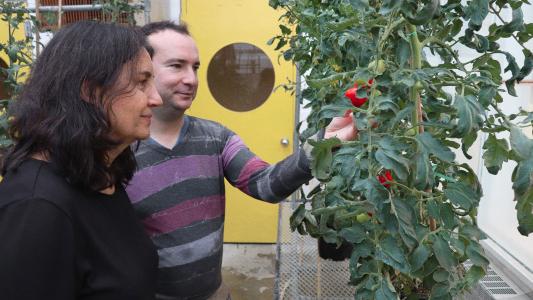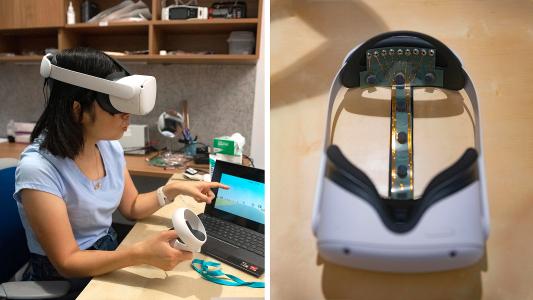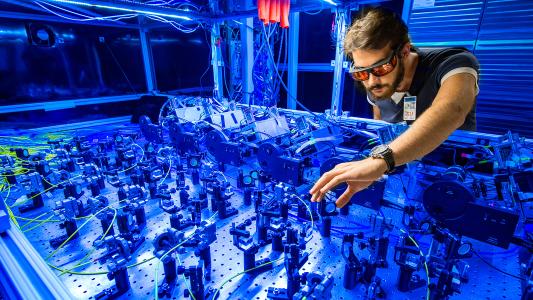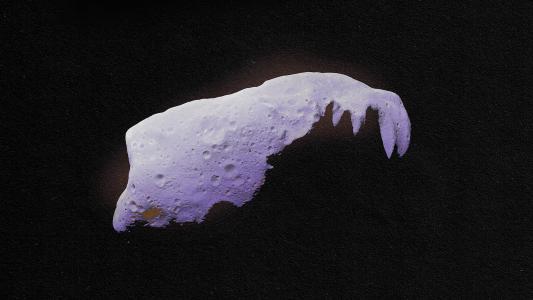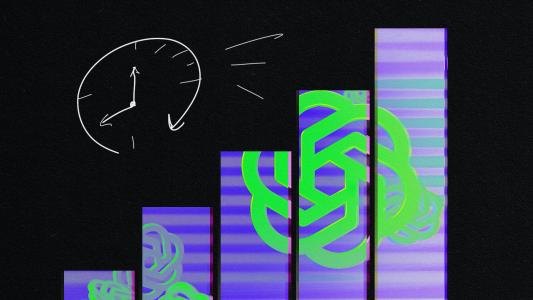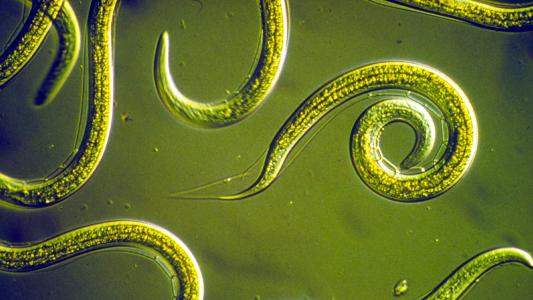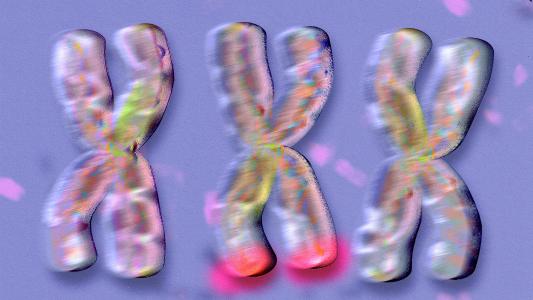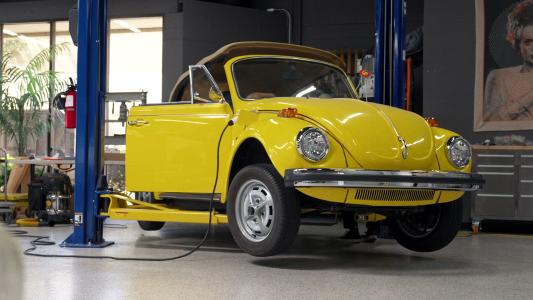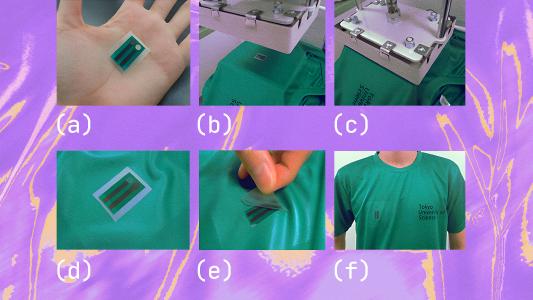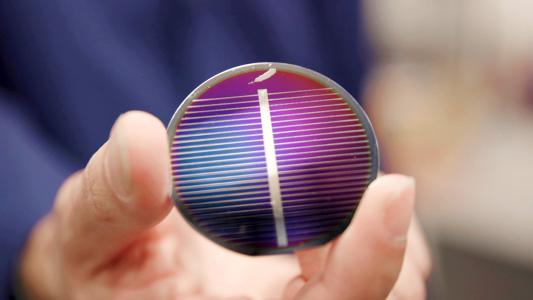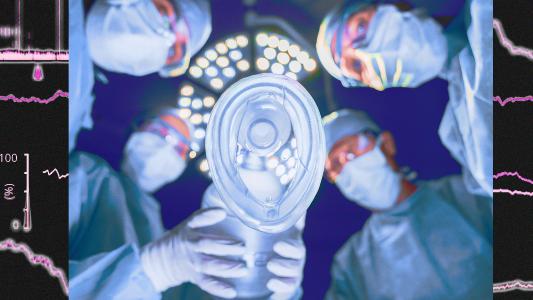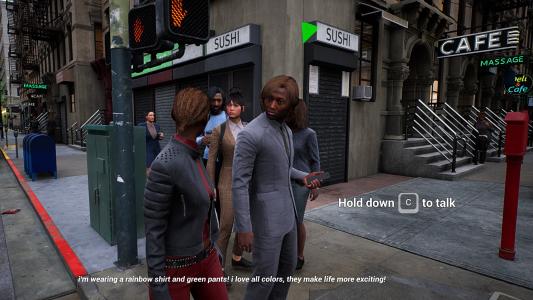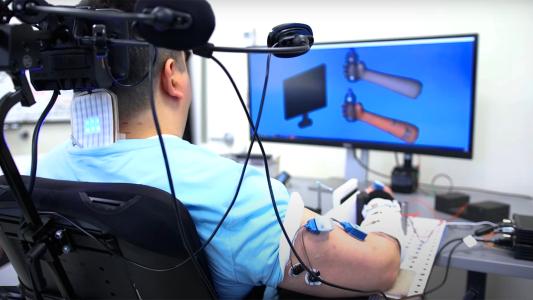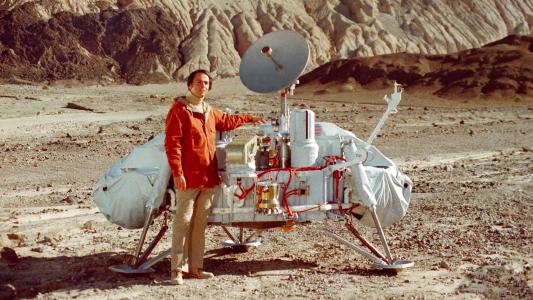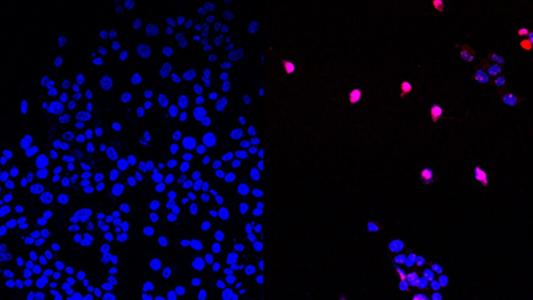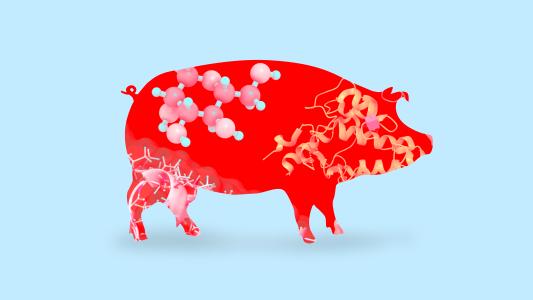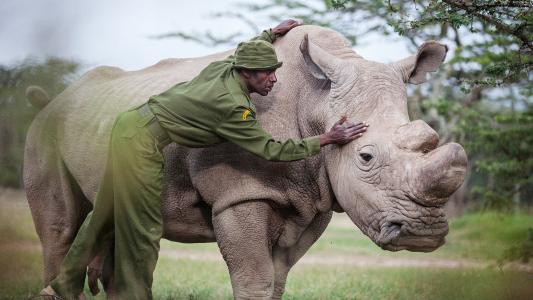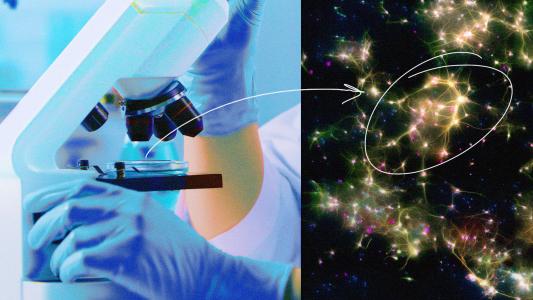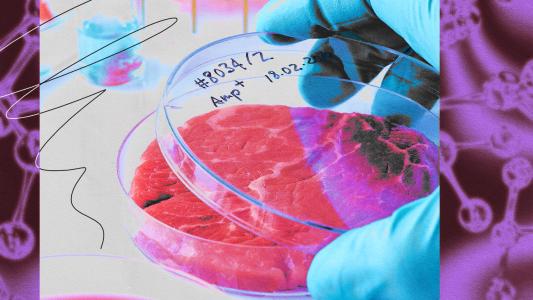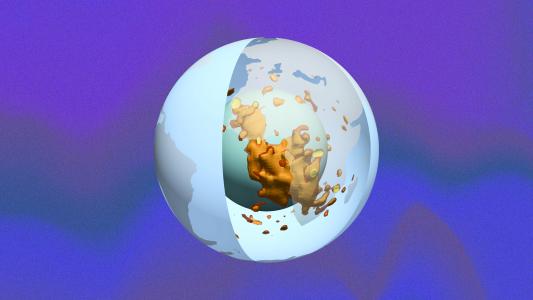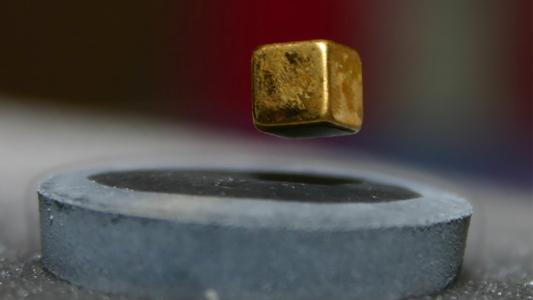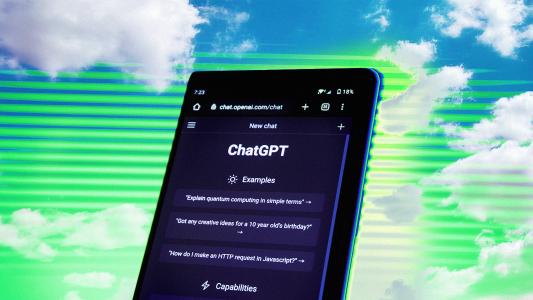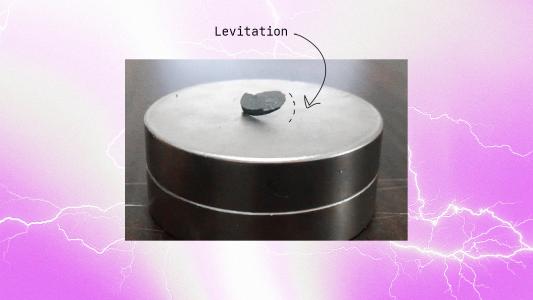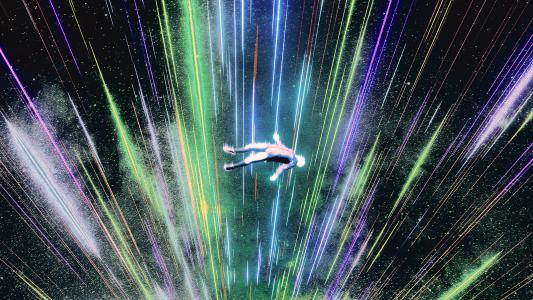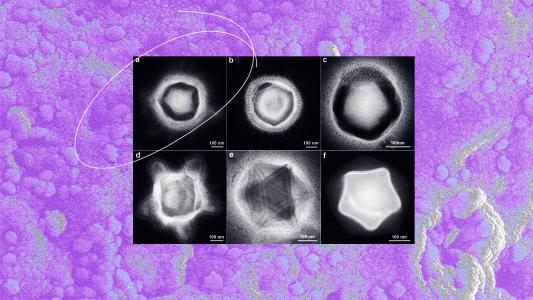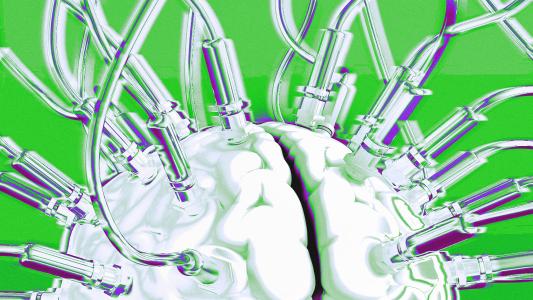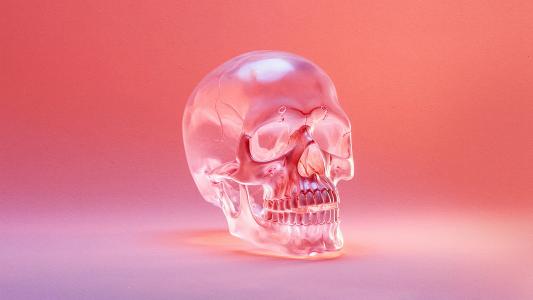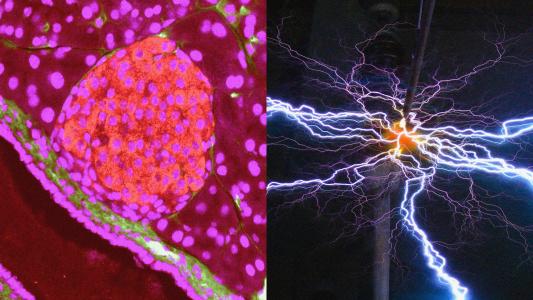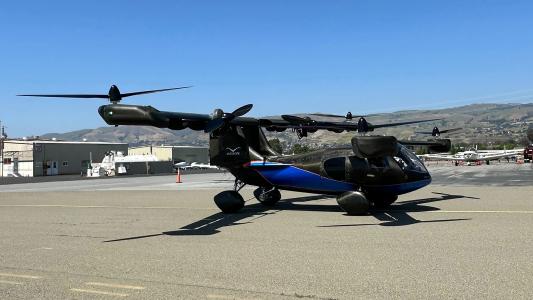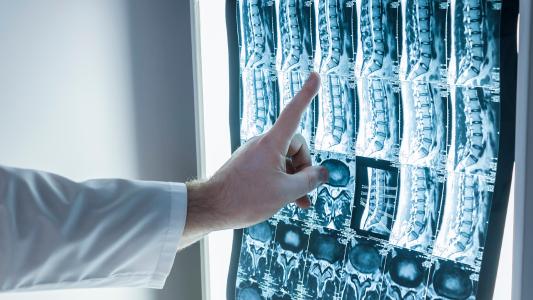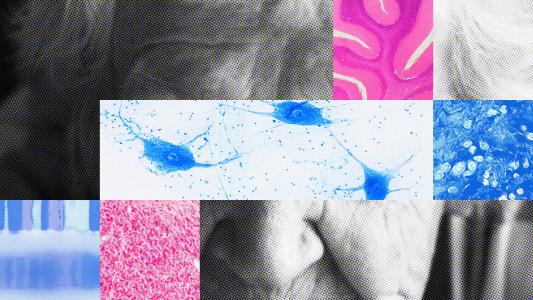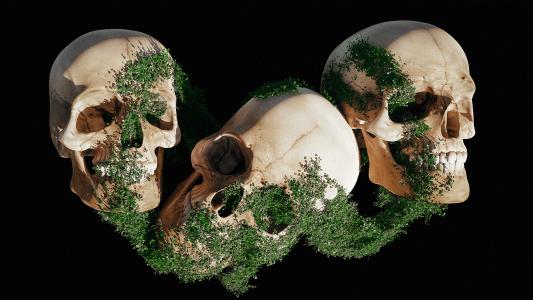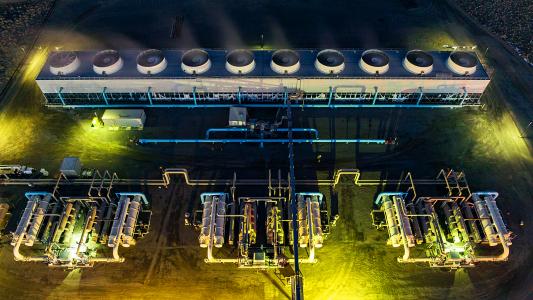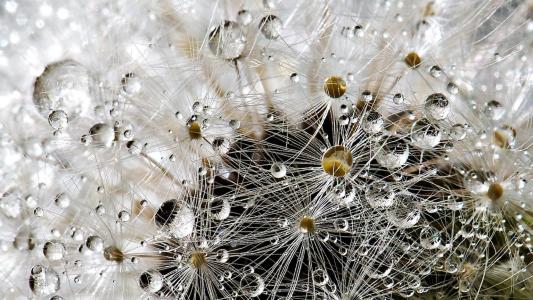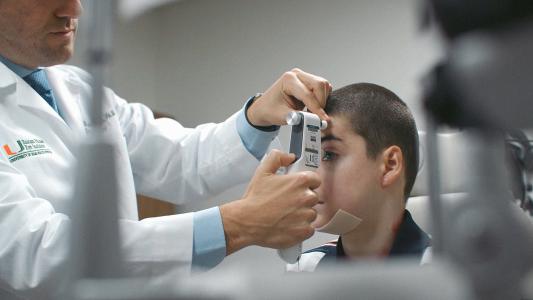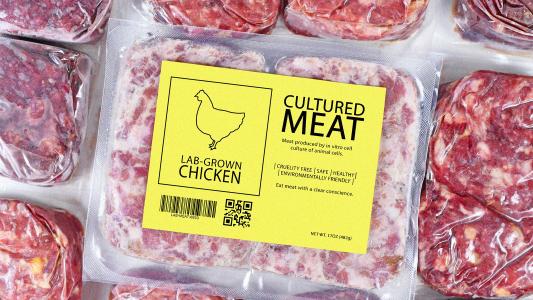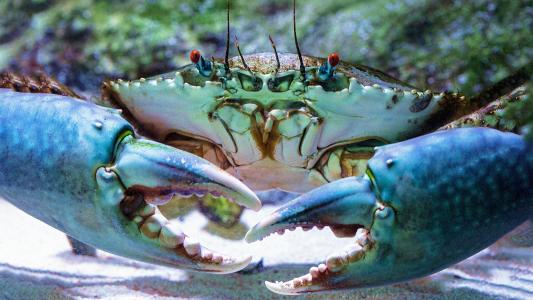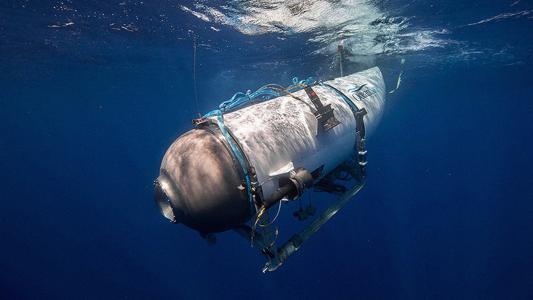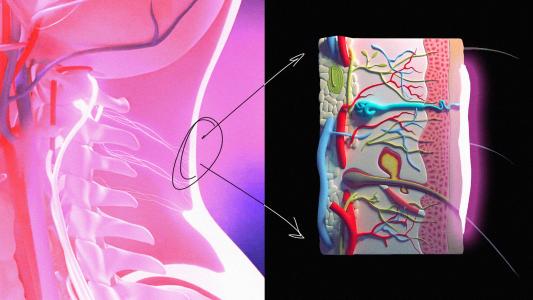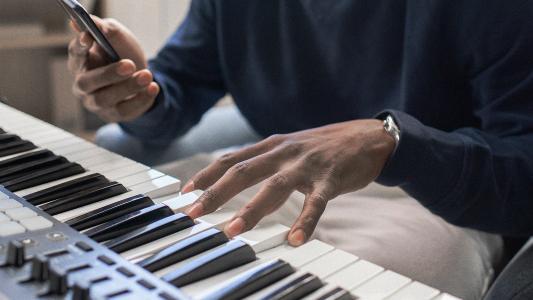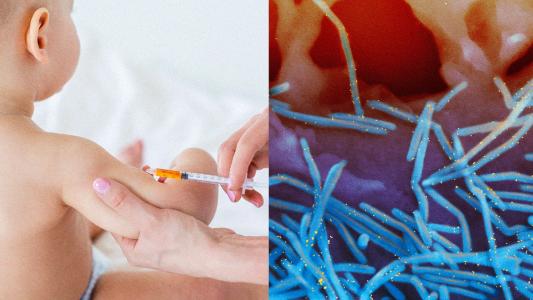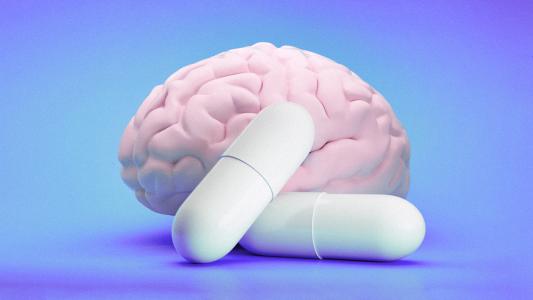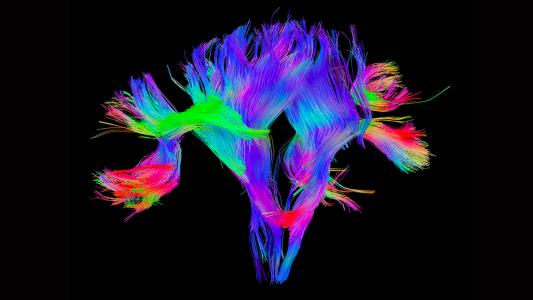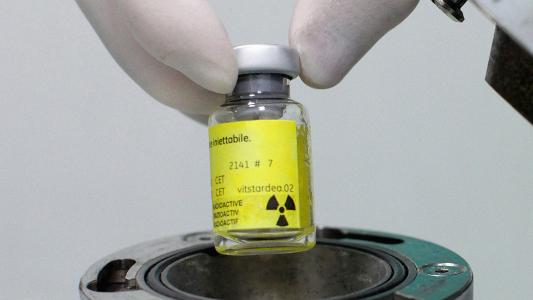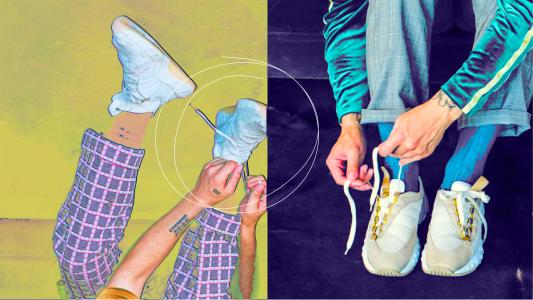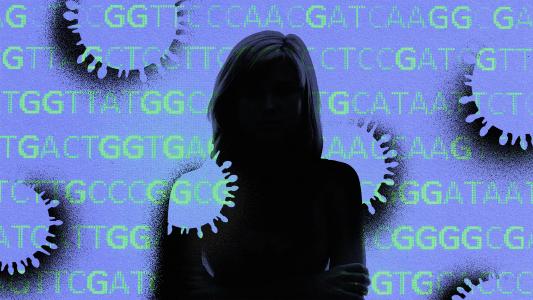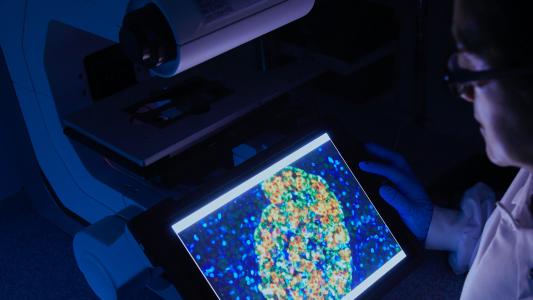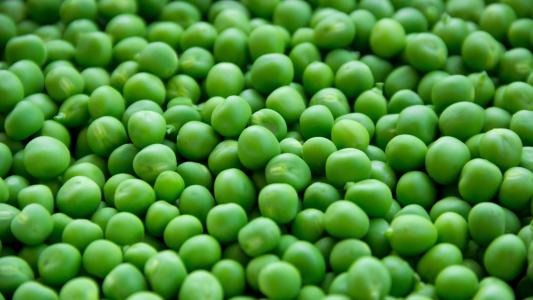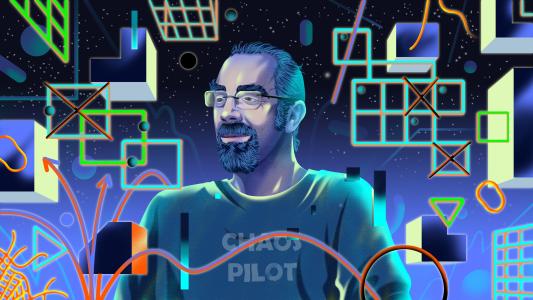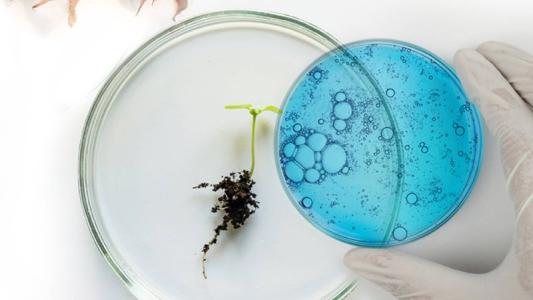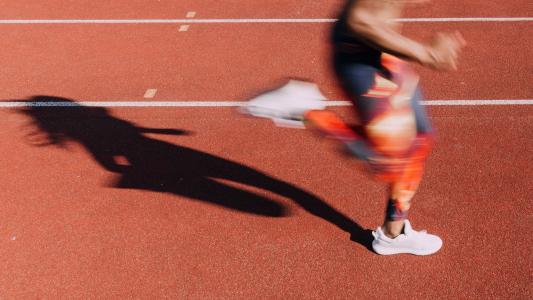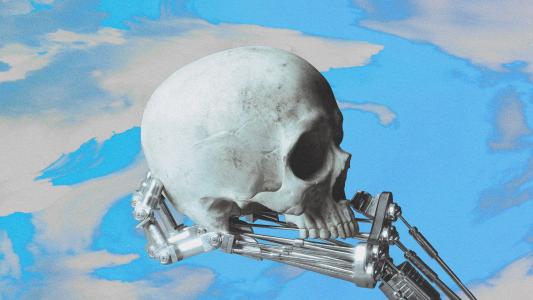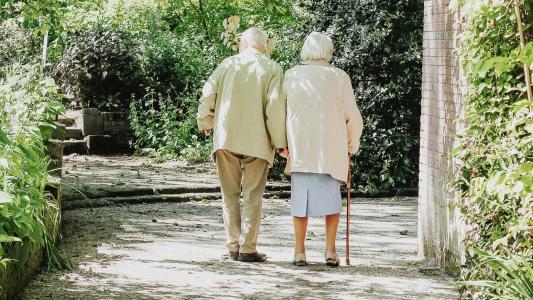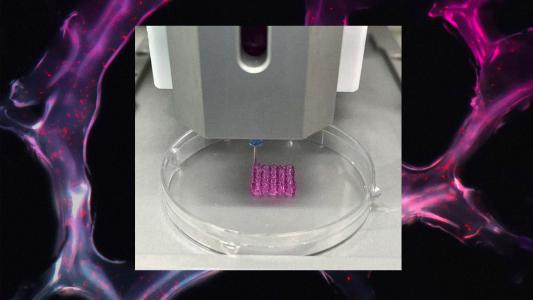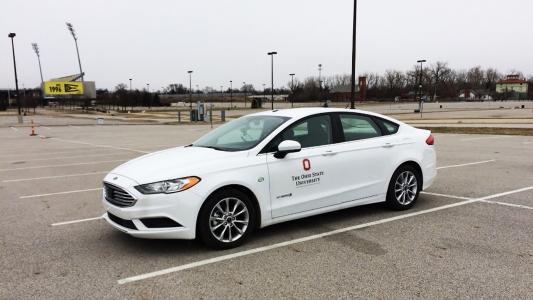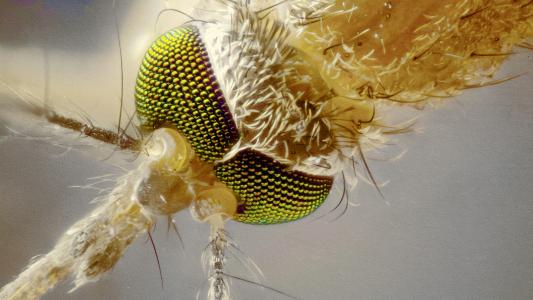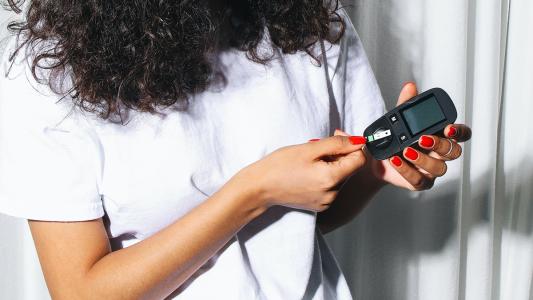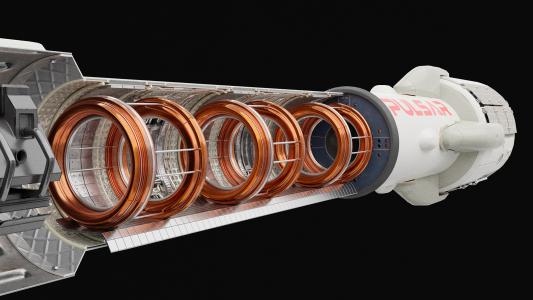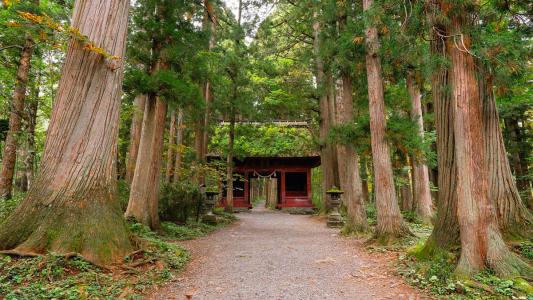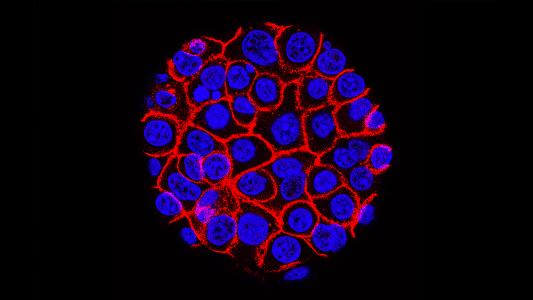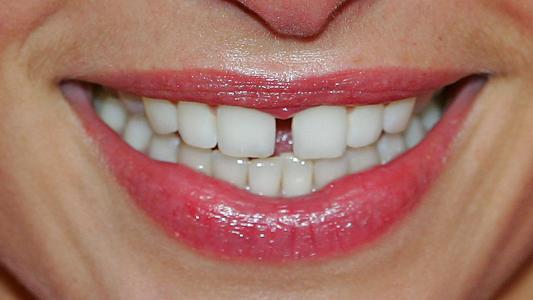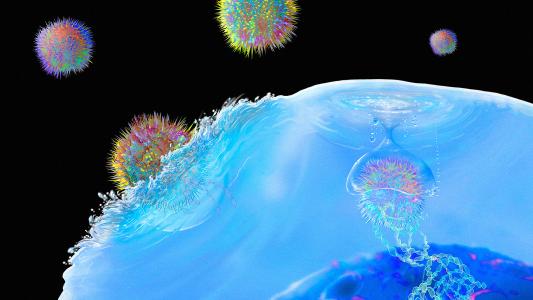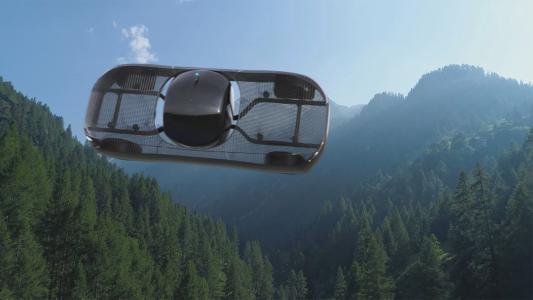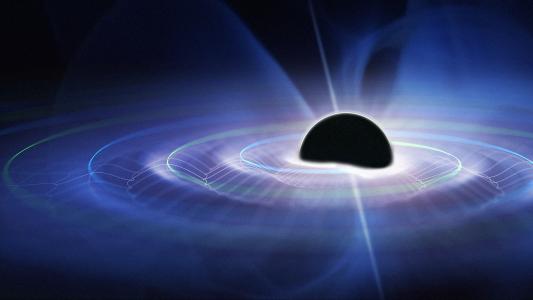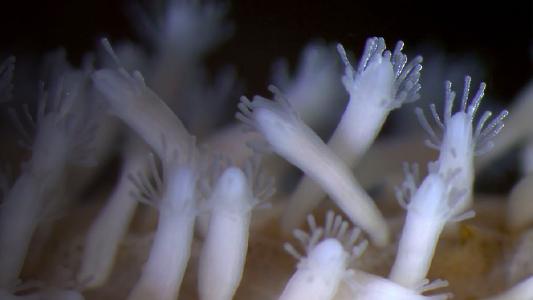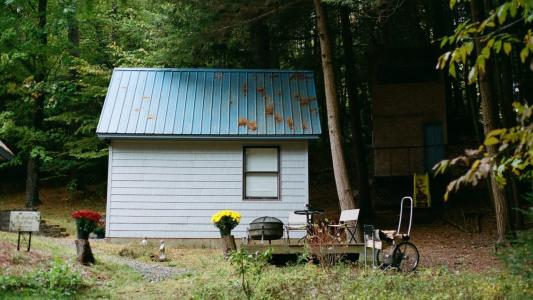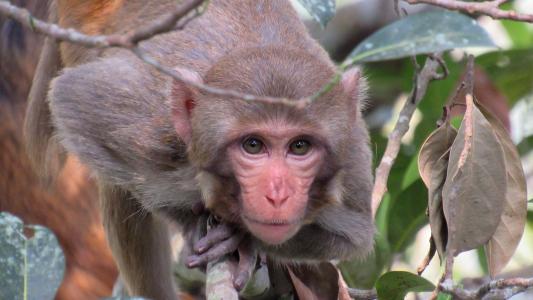Mental illnesses affect brain structure, but in surprisingly different ways
A new brain mapping study identified commonalities in the brains of people with mental illnesses, and it could lead to better treatments.
Time has some fundamental differences from every other dimension
While spacetime itself is four dimensional, it can be decomposed into three spatial dimensions and one time dimension.
Replacing the immune system can boost cancer survival
Mixing stem cell transplantation with immunotherapy significantly improves survival rates for a deadly childhood cancer.
Scientists see metal heal itself for the first time
The first example of metal healing itself, repairing tiny cracks caused by metal fatigue, could lead to an engineering revolution.
“I’ve been here before”: DMT study explores a strange memory phenomenon
DMT can induce a sense of profound familiarity, making users feel as if they have entered an alternate reality they have visited before.
Termite mounds inspire climate-friendly air conditioning
The intricate designs of termite mounds show how to maintain a comfortable climate, without using any power.
Brain stimulation helps people with Parkinson’s walk
A noninvasive form of brain stimulation developed by Japanese researchers improved the symptoms of Parkinsonian gait in a small trial.
Autonomous construction robots are coming to a site near you
In partnership with Million Stories
Built Robotics has introduced an upgrade to construction equipment that converts regular excavators into near-autonomous digging robots.
Too much body fat isn’t the problem — malfunctioning body fat is
When fat cells are overloaded with excess nutrients, they become too big and don't receive enough oxygen, causing them to die.
Discovery of “demon” particle could aid superconductor hunt
The elusive “demon” particle has been discovered in a superconductor-like metal nearly 70 years after it was first predicted to exist.
With “thanabots,” ChatGPT is making it possible to talk to the dead
ChatGPT is making it possible to digitally resurrect the dead in the form of thanabots: chatbots trained on data of the deceased.
Vaccine for common virus could prevent MS
An experimental vaccine designed to prevent an EBV infection might also prevent cancer and multiple sclerosis.
We’re in a “fog of war” as experts and amateurs rush to replicate superconductor LK-99
A group of Korean scientists are claiming the first superconductor that works in our everyday environment. Is it real?
NASA is sending a team of autonomous robots to the moon
NASA is sending three autonomous mobile robots to the moon where they’ll have to work as a team under challenging conditions.
This unique human brain structure may have given us speech
Speech is unique to humans, yet most brain structures involved in speech are also present in Old World monkeys and other primates — except this one.
Existing heart drug may boost treatment for skin cancer
The FDA-approved heart medication ranolazine boosted the efficacy of a BRAF inhibitor in mouse models of melanoma, the deadliest skin cancer.
NASA mission to a $10,000-quadrillion asteroid is two months from launch
NASA hopes to get a glimpse at Earth's core by sending a spacecraft to 16 Psyche, an metal-rich asteroid 280 million miles away.
Scientists make pain relievers like Tylenol from pine trees rather than fossil fuels
Chemists have shown how to manufacture ibuprofen and acetaminophen using a waste product from the forestry and paper industries.
Mutant tomato could save crops around the world
A mutant tomato breed, known to botanists for decades, is highly resilient against blossom-end rot, a notorious plant disease.
Scientists tweak Meta VR headset to measure brain activity
A modified VR headset that records brain activity reveals how being immersed in VR impacts people on a neurological level.
“Muon g-2” experiment hints that a mystery is bubbling inside the quantum foam
Scientists have observed discrepancies between theoretical predictions and measurements of the muon's magnetic properties. What's hiding?
Algorithm finds a potentially hazardous asteroid missed by NASA
HelioLinc3D, an algorithm designed to spot potentially hazardous asteroids in telescope images, just found its first threatening space rock.
Reduction in air pollution may be accelerating ocean warming
Recent ocean warming may be the result of IMO 2020, a rule that dramatically reduced air pollution from the shipping industry.
Study finds ChatGPT boosts worker productivity for some writing tasks
A new report by MIT researchers highlights the potential of generative AI to help workers with certain writing assignments.
Weight-loss drug cut the risk of heart attack and stroke by 20% in large trial
The weight-loss drug semaglutide reduced patients’ risk of heart attacks, strokes, or death from heart disease by 20% in a large trial.
Can we burn metal for heat, instead of fossil fuels?
Researchers are looking at ways of boosting the efficiency of burning iron so that the metal can be used as an alternative energy source.
Nematodes survive 46,000 years on ice
A pair of nematodes from the Pleistocene survived in the Siberian permafrost by entering a survival state known as cryptobiosis.
Fragile X syndrome often results from improperly processed genetic material
Researchers discovered that the mutated gene responsible for fragile X syndrome is active in most people with the disorder, not silenced.
What body shops will look like once electric cars take over
In partnership with Million Stories
Electric vehicles are selling at record highs. Here’s how mechanics are adapting.
New workout sensor tells you when you’re at risk of heat stroke
A wearable that alerts users when they're at risk of heat stroke could be a game changer for health monitoring, if it can become commercial.
NASA gives Blue Origin $35 million to turn moon dust into solar cells
A technology that autonomously fabricates solar cells out of lunar regolith just earned Blue Origin a $35 million NASA contract.
Study finds tracking brain waves could reduce post-op complications
Researchers found brain wave signatures that could help determine when patients are transitioning into a deep state of unconsciousness.
AI now lets you have real conversations with NPCs in video games
Future video games could feature a near-infinite number of possible storylines.
AI-powered brain implant restores feeling, movement in man with paralysis
A first-of-its-kind AI-powered brain implant has restored movement and feeling in a New York man with quadriplegia since 2020.
NASA may have accidentally killed the only life we ever found on Mars 50 years ago
Life may have been discovered on Mars almost 50 years ago, but it could have been unintentionally destroyed.
Targeted therapy kills every type of cancer in the lab
City of Hope researchers are trialing a targeted therapy shown to kill more than 70 types of cancer in preclinical tests.
Want to lose weight? Try eating like a pig
From pig studies, we've learned that calorie counting matters, and eating many smaller meals is preferable to a few larger ones.
Northern white rhinos are set for extinction. Only a technological moonshot can save them.
Project BioRescue aims to create the reproductive technology necessary to resurrect the northern white rhino. But time is running out.
Australian military is funding a computer chip merged with human brain cells
The Australian military is funding research into "organoid intelligence" that involves stimulating lab-grown mini-brains with electrodes.
Lab-grown meat techniques aren’t new
Cell cultures are common tools in science, but bringing them up to scale to meet society’s demand for meat will require further development.
Theory proposes remnants of a destroyed planet lurk near Earth’s core
The two vast “blobs” buried in the Earth’s mantle could be the remains of a planet some believe crashed into Earth 4.5 billion years ago.
Ask Ethan: Is LK-99 the holy grail of superconductors?
The holy grail of superconductor science is to find a superconductor at room temperature and standard pressure conditions. Is LK-99 the first?
Immune cells in the brain may reduce damage during seizures and promote recovery
Microglia perform many functions in the brain, and their role in seizures is unclear — a new study in mice aims to find out more.
Gliding, not searching: Here’s how to reset your view of ChatGPT to steer it to better results
To have a productive session with ChatGPT, think of it as a glider that takes you on journeys through knowledge and possibilities.
Scientists rush to recreate room-temperature superconductor
Claims that a material called “LK-99” is a room-temperature superconductor are being put to the test by the scientific community.
Scientists monitored the brains of 4 dying patients. Here’s what they found
Researchers found a surge of neurophysiological activity in the dying human brain, including in regions associated with conscious processing.
These giant viruses are unlike any we’ve ever seen before
Scientists have discovered a variety of “giant viruses” unlike any ever seen before in Massachusetts’ Harvard Forest
Viral room-temperature superconductor claims spark excitement
South Korean researchers claim they've created a material capable of room-temperature superconductivity, a holy grail of science.
Brain-computer interfaces could let soldiers control weapons with their thoughts
Brain-computer interfaces raise many ethical questions about how and whether they should be used for certain applications — including war.
Why death matters
Reframing life in terms of death reveals some of the biggest philosophical problems with how we think about living systems.
New study shows how electricity can turn on genes
A prototype wearable demonstrates a novel way to trigger gene expression: by zapping cells with electricity.
PhD student solves a mysterious ancient Sanskrit text algorithm after 2,500 years
For centuries, a grammatical problem surrounding a meta-rule in Pāṇini's Aṣṭādhyāyī has risked readers misinterpreting the text.
A $790,000 flying car is now cleared for takeoff
Air mobility startup Aska has begun flight testing the Aska A5, an SUV-sized flying car that costs an eye-watering $789,000.
What lies beneath our irrational decisions
In new book, an MIT scholar examines how game-theory logic underpins many of our seemingly odd and irrational decisions.
AI will soon tell doctors how to predict your future health
A new AI can can analyze X-rays for a important predictor of heart disease with a high degree of accuracy.
Two CRISPR treatments for Alzheimer’s ace early studies
Two teams of researchers have used CRISPR to alter the genes of mice to alleviate signs of Alzheimer’s disease.
Almost everyone fears death — but not in the same ways
Fear of death may be the most primal, normal human fear, but it's one we all experience differently.
Google-backed startup sets two world records in geothermal power
Google-backed startup Fervo Energy has successfully tested a record-breaking enhanced geothermal system in Nevada.
Where next for crypto and the evolution of blockchains?
The new book "Data Money: Inside Cryptocurrencies, Their Communities, Markets, and Blockchains" explores how crypto is made and traded.
Quantum superposition begs us to ask, “What is real?”
The weirdness of quantum superposition means the same experiment, repeated many times under the same conditions, can give different results.
First-of-their-kind eye drops reverse blindness in teen
A topical gene therapy designed to heal the wounds of people with “butterfly skin disease” has now been used to reverse blindness.
By 2040, 60% of “meat” won’t come from dead animals
"Novel vegan meat alternatives" and cultured meat will likely become competitors to traditional meat products, the report says.
Crab shells boost the lifespan of zinc-ion batteries
A zinc-ion battery containing crab shells could serve as the foundation for future renewable energy storage systems.
New clinical trial is testing a ketamine skin cream for PTSD
A topical ketamine treatment designed to alleviate the symptoms of PTSD without causing hallucinations has entered clinical trials.
4 ways to promote neurogenesis in your brain
Research from the 1960s proves creating new neurons as adults is possible, and modern-day research explains how to promote it.
New RSV shot protects babies against dangerous lung infections
The FDA has approved nirsevimab, an RSV shot that protects babies against the leading cause of infant hospitalizations in the US.
ADHD drugs could alleviate symptoms of Alzheimer’s
Scientists reviewed 40 years of clinical studies that assessed the effects of NA-targeting drugs, such as certain ADHD drugs, on Alzheimer’s.
Apple has reportedly built its own ChatGPT
Apple is reportedly exploring the potential of generative AI, but hasn't decided how to incorporate the tech into its products yet.
Neuroscience research triggers revision of a leading theory of consciousness
A brain scanning study on unconsciously processed visual information disrupts a leading theory of consciousness: global workspace theory.
Radioactive drugs are transforming cancer treatment
Radiopharmaceuticals allow doctors to directly target patients' cancer cells and avoid healthy tissue typically damaged by radiation therapy.
The mathematically correct way to tie your shoes
One of the great accomplishments of childhood comes when we successfully learn how to tie our own shoes: making a "bow" for the first time.
Got COVID but felt fine? It may be your genes.
A person’s chances of having asymptomatic COVID are dramatically increased if they possess a certain genetic mutation.
Startup aims to transplant pig hearts into kids in 2024
eGenesis hopes to transplant pig hearts from genetically engineered swine into young children with serious heart defects by 2024.
Fiber is your body’s natural guide to weight management
Fiber is important not just for happy bowel movements, but also for your blood sugar, weight, and overall health.
Innovation chief says “pressure test” your pet hypothesis. It’s guaranteed to be wrong.
His grandfather, a member of Oppenheimer’s atomic bomb team, foresaw the potential of nuclear energy to power cities – not destroy them. Today, Astro Teller is on a mission to harness innovation for good. Here’s how he’s doing it.
Lab-grown cotton is on its way to consumers
Cellular agriculture startup Galy has signed a deal that will make its lab-grown cotton available to consumers for the first time.
How an H.G. Wells sci-fi novel predicted Oppenheimer and atomic bombs
The “atomic bombs” in H.G. Wells’ 1914 novel The World Set Free influenced a pioneer of real-world nuclear weapons: physicist Leó Szilárd.
Exercise may or may not help you lose weight and keep it off
There isn’t a debate on the overall health benefits of regular exercise, but scientists don't agree on whether it actually keeps weight off.
Will AI kill humanity by 2100? “Superforecasters” and experts disagree on the odds
AI was the most divisive topic in a recent predictions tournament.
Aging is complicated – a biologist explains why no two people or cells age the same way
While some people may be older in chronological age, their biological age might be much younger. A biologist explains why.
Natural killer cells now have a better shot at destroying cancer
A 3D-printing-based approach could make immunotherapies based on natural killer (NK) cells better equipped to destroy cancer.
Neuroscience shows that speed reading is bullshit
Speed reading programs claim to teach students how to read more quickly without reducing comprehension. Research shows that they don't work.
VR for self-driving cars makes training safer, more efficient
A system that acts like a virtual reality headset for self-driving cars makes training the vehicles safer and more efficient.
Not all repellents are equal – here’s how to avoid mosquito bites this summer
Researchers studied different types of mosquito repellents and their efficacy for over a decade. Here's what they found.
A functional cure for brittle diabetes is now available in the US
Islet transplantation, a procedure shown to functionally cure some people with hard-to-control brittle diabetes, has been approved in the US.
What are “meta-skills” and how can they supercharge your life?
There are many meta-skills out there, but feeling, seeing, dreaming, making, and learning are likely the most important in the modern world.
A fusion rocket designed to travel 500,000 mph is under construction
British startup Puslar Fusion is developing a fusion rocket it says will travel 500,000 mph, expanding our reach throughout the solar system.
World’s oldest trees reveal the largest solar storm in history
One of the greatest threats to all our infrastructure is a solar storm, which has the potential to cause a multi-trillion dollar disaster.
New AI predicts who is most at risk of pancreatic cancer
An AI that identifies patients most at risk of pancreatic cancer could lead to earlier diagnosis of the deadly disease.
Viktor Frankl: The doctor who prescribed the meaning of life to his patients
Not having a meaningful life can be dreadful, and one psychologist thought it was the root of many neuroses. His ideas became Logotherapy.
Drug to grow new teeth heads to human trials
A drug that causes animals to grow new teeth could one day allow us to regenerate teeth lost to injury, disease, or old age.
If you have a complex project, follow “Gall’s law” — or it will fail
Success can be based on the fundamental observation that working complex systems arise from working simple systems.
MIT’s vaccine-enhanced CAR-T cell therapy destroys solid tumors
Adding a cancer vaccine to CAR-T cell therapy, a revolutionary treatment for blood cancers, boosts its efficacy against solid tumors.
Quantum biology: Your nose and house plants are experts at particle physics
Quantum processes, normally associated with the very small or very cold, have been found to occur in biological systems. This was unexpected.
The US just certified its first fully electric flying car
Alef Aeronautics' Armada Model Zero is the first fully electric flying car to secure a certificate of airworthiness from the FAA.
Astronomers use dead stars to measure gravitational waves produced by ancient black holes
As research challenges theories of how galaxies evolved, studying the era after the Big Bang using gravitational waves could be invaluable.
“Zombie” cells are the key to a tiny sea creature’s full-body regeneration
A tiny sea creature’s regenerative abilities add to the growing evidence that senescent cells aren’t always detrimental.
How building more backyard homes, granny flats, and in-law suites can help alleviate the housing crisis
Accessory dwelling units, or ADUs, are sometimes called “granny flats,” “backyard homes,” “in-law suites,” or “backyard cottages.”
One shot of the klotho protein boosted memory in old monkeys
A single shot of klotho, a protein linked to longevity, improved the working memory of older rhesus macaques.
